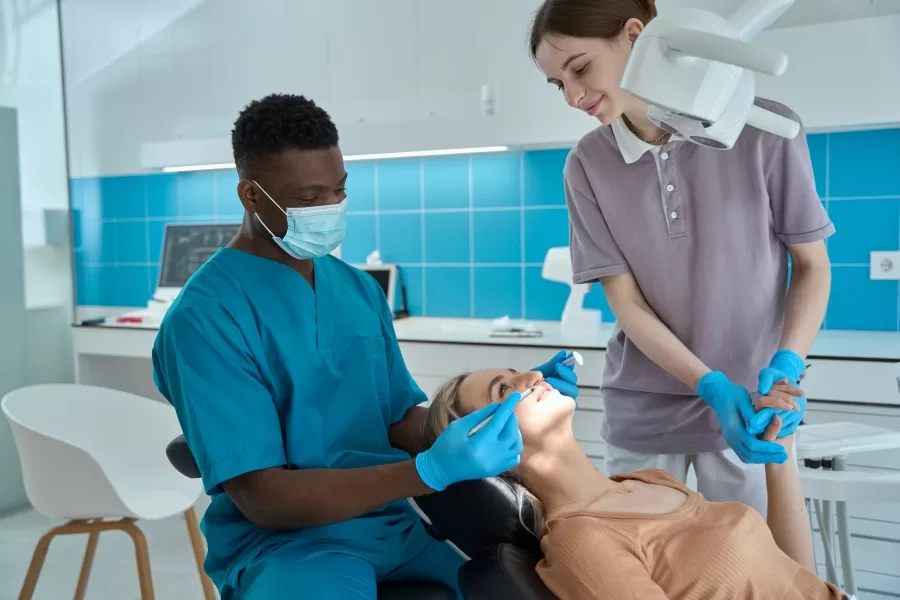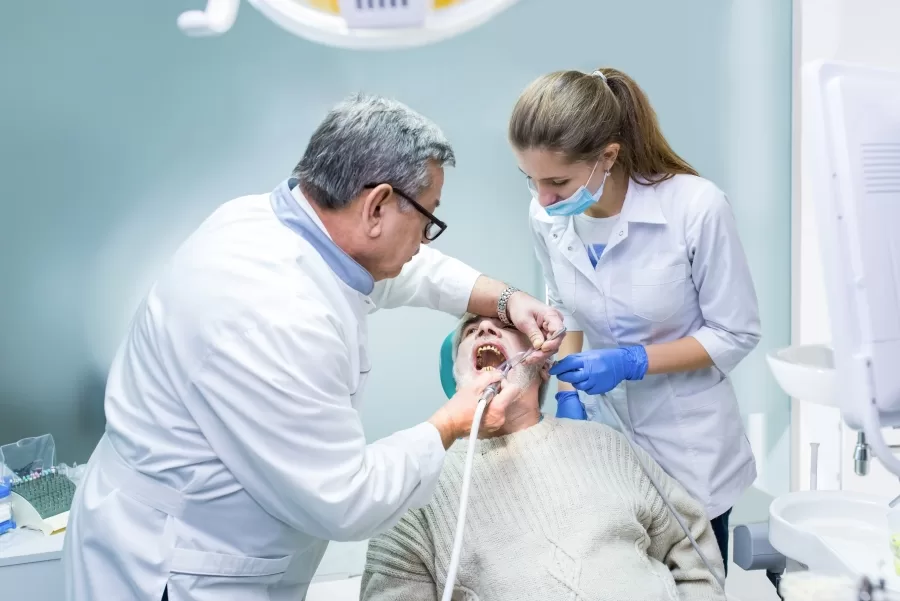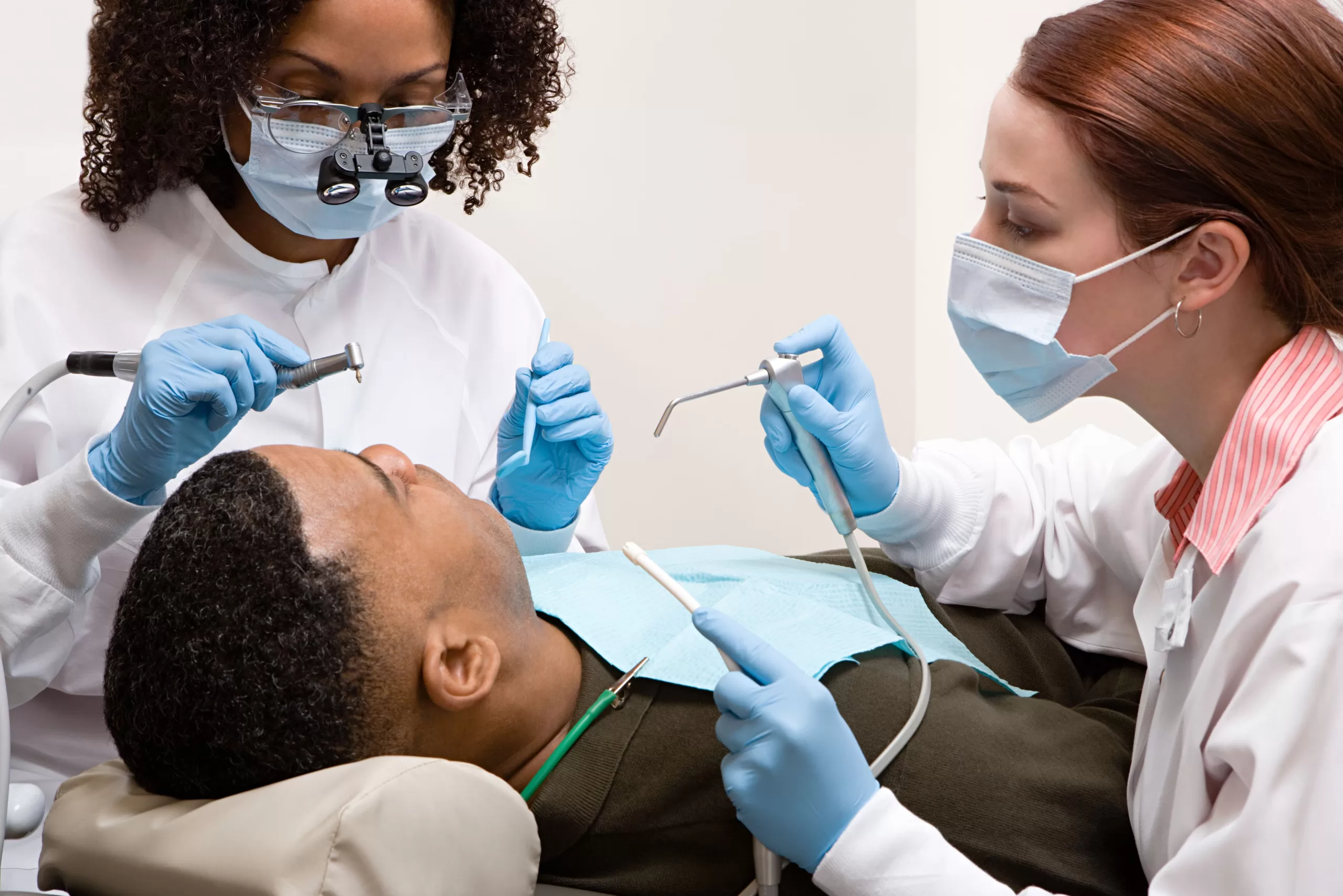Some problems in your mouth are easy to ignore: a sore area, some mild irritation, or a minor bump that comes and goes. Oftentimes, these little changes tend to resolve on their own. But if whatever it is persists longer than it should or begins to look unusual, it’s best to get it checked out.
An oral biopsy is an easy and trustworthy method of determining what’s going on. It entails a tiny sample of tissue being taken from the mouth and being sent off to a laboratory for examination. It can help diagnose causes of swelling or detect more serious concerns, such as oral cancer. The sooner an issue is detected, the easier the treatment.
The term “biopsy” may seem scary, but the test itself is typically quick and only mildly uncomfortable. It’s not a matter of making assumptions—it’s a matter of having solid information, so whatever follows, if necessary, is done so in a knowledgeable rather than an uninformed way.
What Is an Oral Biopsy and Why Might You Need One?
An oral biopsy may sound intimidating, but it’s actually a simple procedure that offers peace of mind. Essentially, your dentist will take a sample of tissue from the suspicious area in your mouth and pass it to the labs to get the sample tested for any issues. It’s the most effective way to determine precisely what’s going on when things don’t quite feel right.
So, why exactly is this procedure prescribed? It’s usually because you might be suffering from frequent sores, random lumps, persistent swelling, or patches that won’t heal. These usually aren’t serious, but they can be indications of something more, such as an infection or even the initial stages of oral cancer. And the earlier you catch on to them, the better, naturally.
The procedure itself? Fast and simple. You won’t have a hint of what’s happening because the procedure is performed under local anesthesia. It’s minimally invasive, but significant—sometimes it can be the difference between doing something about the issue and not even diagnosing it.

Symptoms That May Require an Oral Biopsy
Some changes in your mouth are no concern whatsoever, like the occasional canker sores and mild irritation. However, certain things should not be ignored at any cost. If you notice any of the following symptoms, it’s well worth having them checked out with an oral surgeon to see if an oral biopsy is needed.
Non-healing Mouth Sores
If you’ve got a sore that’s prolonged more than a few weeks, you might need to consider consulting a dentist. Most mouth sores heal pretty quickly, but if they refuse to leave within a couple of days, you should definitely get them checked out!
Lumps or Swelling in the Gums or Cheeks
Noticed swelling or a lump that hasn’t gone away? It might be a great indication for you to head to the clinic. There’s a high possibility that it could be an infection of sorts or something serious, however, an oral biopsy can help determine the problem and offer some comfort to your mind and your mouth.
Red or White Patches Inside the Mouth
Any peculiar red or white spots that refuse to get better are a little concerning. Although they could be used for some sort of irritation, however, it could also be something more, like early oral cancer. If the patches refuse to leave, getting an oral biopsy is the smartest move.
Chronic Sore Throat or Hoarseness
A constantly sore throat or a hoarse voice that lasts weeks could be more than a cold. If so, it’s worth going to see an oral surgeon. A biopsy could be the next thing to make sure everything’s okay.
Difficulty Swallowing
If you cannot swallow, whether it is food or liquids, do not mess around with this. It may be caused by anything from an infection to something much worse. A biopsy will allow you to see what is going on.
Ongoing Pain or Bleeding
Pain or bleeding that won’t stop in your mouth can be uncomfortable and scary. It could be a gum condition or something else, but it’s for sure time to see a doctor. A biopsy might be required to figure out why you are experiencing pain.
Changes in the Texture or Color of Mouth Tissue
Ever notice your mouth tissue changing in color or texture? Maybe it’s becoming thicker, or it looks paler or darker than normal. This is something to certainly watch out for. Symptoms like these may sometimes indicate that an oral biopsy is required to rule out issues.
Why Early Detection Matters
Here’s the thing—most people don’t give a second thought to a sore in their mouth. But occasionally, those little, easy-to-overlook symptoms can be the first indications of something worse.
Oral cancer strikes almost 54,000 individuals in the U.S. annually, reports the American Cancer Society. And though that may feel far-fetched, what matters is this: when oral cancer is detected early, the five-year survival rate can be as much as 85%—when it’s diagnosed late, that percentage plummets.
That’s why early detection isn’t just a good idea—it’s a lifesaver. A rapid oral biopsy can be the key to catching abnormal changes before they become a problem. It’s not a matter of panicking—it’s a matter of getting ahead of what might become a much larger issue.
Early, accurate diagnosis is a top priority at Ridge Oral Surgery. Using the latest approaches, our expert team carefully weighs unusual symptoms to inform patients and ease the issue as soon as possible.

What to Expect During Your Oral Biopsy Appointment
Anything with “biopsy” in the title can be a bit intimidating. But in truth? An oral biopsy is an easy, stress-free procedure that’s meant to provide you with answers quickly, and it’s done before you even know it.
First up is the consultation. The oral surgeon takes a look at what’s going on, maybe a sore that’s overstayed its welcome or a strange spot that doesn’t feel quite right. You’ll go over your symptoms, maybe get a quick scan, and if a biopsy is needed, they’ll explain everything clearly before moving forward.
And then there’s the local anesthesia. A couple of numbing injections, and that’s it, you won’t feel a thing, just some pressure at worst. After everything’s numb, a tiny tissue sample is taken out very carefully. It may be done with a scalpel or even a laser, depending on the location and the technology used in the clinic.
The sample heads to a lab for testing, and results typically come back in about a week, give or take. You’ll get a follow-up appointment to go over everything and talk about next steps, if needed.
Meet Your Oral Surgeon in New Jersey
We understand, it’s intimidating to hear the word biopsy. That’s why at Ridge Oral Surgery, we take it upon ourselves to make a stressful situation something you can handle—and even make it reassuring.
Our board-certified oral and maxillofacial surgeons aren’t just super-qualified (although they are); they’re also human beings who understand how to listen, explain, and walk you through it without all the medical mumbo-jumbo. We think patients should have clarity, not confusion.
From your initial call to your last follow-up, we make it simple and caring. No hurrying. No guessing. Just skilled care provided with compassion and accuracy.
Individuals come to us from throughout New Jersey, and they return. Why? Because they know they will be treated with dignity and with care, not merely as another case. And that is something we are very proud of.
When you’re ready for answers, we’re ready to help—every step of the way.
FAQs About Oral Biopsies
Got questions about oral biopsies? You’re not alone. Nervous, curious, or just wondering what to expect? It’s nice to have straight, easy answers. Here are some of the most frequently asked questions by patients—answered simply, no beating around the bush, no medical mumbo-jumbo.
Is an Oral Biopsy Painful?
Nope. You have local anesthetics inserted in the area to numb you, so during the procedure, you won’t be able to feel pain, perhaps a little pressure. After it’s over, you may be a little sore, but normally over-the-counter medication can cure it.
How Long Does it Take to Heal?
Most individuals recover in no time, within a couple of days. You can be asked to hold off on crunchy or spicy foods for a while and maintain cleanliness, but recovery is normally smooth and uneventful.
Is it covered by Insurance?
In most instances, yes. Most dental or medical plans cover oral biopsies, particularly if there is a medical reason for it. However, coverage may still differ, so it’s always wise to verify with your provider in advance.
What if the Biopsy Indicates Cancer?
If a biopsy indicates cancer or precancerous signs, your oral surgeon will take you through what to do next immediately. The earlier the diagnosis, the greater the treatment possibilities and the prognosis. You will not be left to fend for yourself.
When Should You Call an Oral Surgeon?
Not all mouth irritation or soreness is something to worry about—but when a thing overstays its welcome, it’s time to investigate. Oral tissues are quick-healing, so if something persists for longer than a couple of weeks, it’s your body’s way of waving a red flag.
These are some warning signs that need not be ignored:
- A sore or ulcer lasting more than 14 days
- Lumps, bumps, or swelling that don’t resolve
- Repeated red or white patches on the inside of the mouth
- Spontaneous bleeding or chronic pain
- Trouble swallowing or speaking
- Alteration in the color or texture of gum or cheek tissue
Even if the concern appears trivial, early assessment can avoid more critical issues in the future. That’s where an experienced oral surgeon enters the picture.
At Ridge Oral Surgery, we put getting answers at your fingertips. You can make an appointment to see us in our Basking Ridge, NJ office by contacting us at (908) 595-0600 or using our online contact form. We accept most major insurance companies and have flexible payment options to ensure care is as stress-free as possible.





